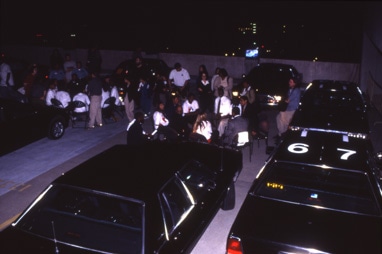Conclusion
As I stated in the opening paragraphs of this piece, I believe the Bush administration played on the vulnerability of an American public traumatized by September 11, 2001, to advance a post-Cold War political and military agenda long under development by members of the administration. As one senior administration official reportedly observed, inside the government, the terrorist attacks were “a transformative moment” not because they revealed a threat previously unknown to the government, but because they drastically reduced the American public’s resistance to military action abroad. With the attacks on the United States, “the options are much broader.” 1 One of those options was the invasion of Iraq.
In order to justify the invasion, administration officials lied and distorted and manipulated information to push the American public to support an invasion of Iraq as “preemptive self-defense.” While the Bush administration’s post-September 11 national security strategy, based on preemption, did not stir much debate inside the United States, it did abroad. Many argued that it would create precedents that would make the world much less secure rather than more.
To now find that the evidence used to justify its first preemptive action – the invasion of Iraq – was based not just on uncertain intelligence, but on “forward-leaning” interpretations of intelligence as well as outright lies to justify policies already in motion puts U.S. credibility further at risk. The strategies and tactics used by the Bush administration to achieve its ends left, in the words of one commentator, “diplomacy in ruins.” The impact of its increasingly tattered credibility on both U.S. and global security remains to be seen.
In addition to the erosion of domestic civil liberties through legislation such as the Patriot Act, democracy in the United States has been threatened by the stifling not just of the freedom of speech of individuals but of public discussion and debate about policies that have an impact on the course of our nation. Major U.S. media outlets have been complicit in the erosion of our freedoms by acting more like public relations firms for the Bush agenda than objective news sources that supposedly underpin the much-lauded American free press.
There have been a few journalistic voices that have spoken out, including one of the foremost in contemporary America, Walter Cronkite. In discussing his decision in mid-2003 to begin to write a regular column, he stated,
In my years as a journalist I have known only a single time as critical as this, when it seemed that the future of our democracy hung in the balance . . . We all know the issues that today threaten a seismic change in this land we love and our relations with each other and the rest of the world: Our bellicose military policy, our arrogant foreign policy, our domestic security policy that threatens our freedom of speech, press and person . . . As a witness to most of our 20th-century history, I have a few ideas that might at least be provocative. And a little provocation with perhaps some original ideas can’t hurt as we put the issues and their possible solutions on the table for discussion. 2
Only if more and more of us continue to find and exercise our public voices can the violence wrought on our democracy through the lies and distortions of the current administration to advance its policies, coupled with the complicity of much of the mainstream media, be countered. As this situation demonstrates, the use of violence in all forms to counter violence only serves to erode our liberties and make us all less secure – both in the United States and around the globe.
- Nicholas Lemann, “The Next World Order: The Bush Administration May Have a Brand-New Doctrine of Power,” New Yorker, April 1, 2002.[↑]
- King Features, Press Release, “Walter Cronkite to Write Weekly Newspaper Column,” n.d., http://www.kingfeatures.com/pressrm/PR129.htm.[↑]



